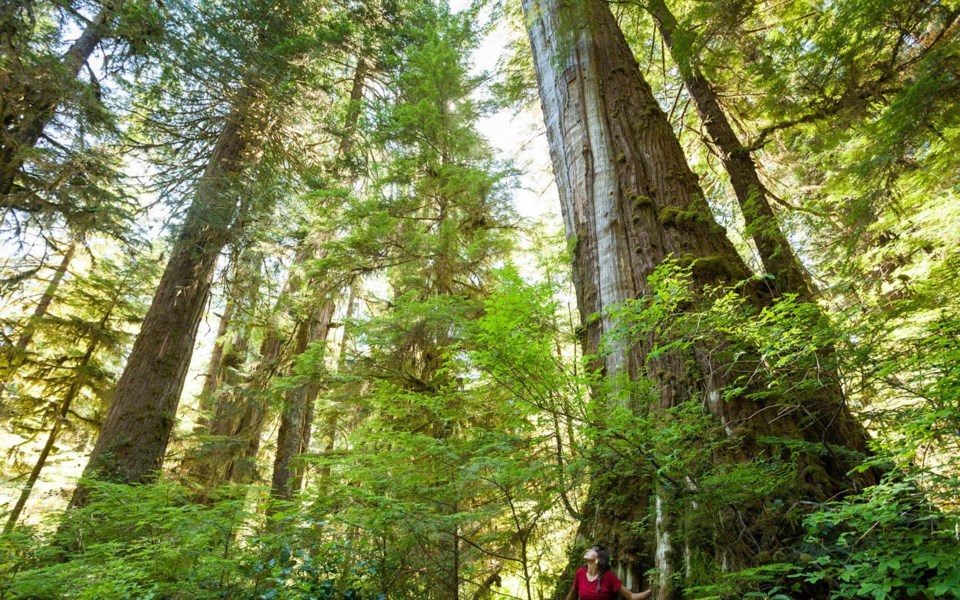The province isn't adequately supporting municipalities on "the frontlines" of the fight against climate change, said B.C.'s auditor general in a damning report earlier this month.
In an audit of B.C.'s climate change policies, Auditor General Carol Bellringer said that local governments are "challenged to effectively take action" against the growing impacts of climate change due to a lack of "financial support, reliable data and knowledge, and policies at the provincial level."
The report, released Feb. 15, paints a troubling picture of a government with no clear strategy to prevent major environmental risks such as wildfire, flooding, and drought.
"Government has not comprehensively assessed the risks posed by climate change, and doesn't have a plan to move forward," the report says, adding that it is "very likely" B.C. will not meet its 2020 target of reducing emissions 33 per cent below 2007 levels.
In her audit, Bellringer stressed the need to couple climate-change mitigation measures with the ability to adapt to rapidly shifting conditions. She was especially critical of the limited monitoring and reporting of progress on climate change goals across a number of ministries.
"I would say, in particular on the adaptation side, it involves so many ministries that one of the key reasons why you'd end up not having a full picture of everything going on was that there was no central coordination," Bellringer said in a follow-up interview with Pique last week.
But adaptation will only get us so far, making the need for a full-scale shift to renewable energies all the more timely, explained Jens Wieting, senior forest and climate campaigner for Sierra Club BC.
"Adaptation can only work to a certain level of warming," he said. "If we pass very dangerous thresholds then there will be a point where our society can no longer adapt, because it's simply not possible. The easiest example is flooding and sea level rise... Once we see sea levels rise potentially several feet, there will be a point where the risks become unmanageable and there would be simply no way to build infrastructure to protect cites and communities."
Locally, Whistler Mayor Nancy Wilhelm-Morden said the municipality would benefit from greater clarity around provincial funding for a number of resort initiatives targeting climate change, such as the recent push to expand regional transit.
"From a fiscal and legislative perspective, we're looking for assistance from the province for our regional transit in particular. That will make a significant difference to our climate action initiatives and our GHG emissions if we are able to bring that into fruition," she said. "Certainly the province is a significant partner to make sure that that happens."
Funding for wildfire prevention is another area where the Resort Municipality of Whistler (RMOW) would like to see added clarity from Victoria.
"One of the things that is hampering us is the lack of certain, multi-year funding," said Wilhelm-Morden. "We have to apply every year and maybe we get it, maybe we don't, and then it makes it really difficult for us to plan and act appropriately, with respect to wildfire in particular."
The RMOW has earmarked $1.46 million for community wildfire protection in its proposed 2018 budget.
There is also the fear, outlined in the audit, that, as wildfire events increase in frequency and severity, as scientists predict they will, the province's BC Wildfire Service's resources could be spread thin.
"We may find that we have reduced resources at particular times when we're not currently experiencing problems," explained Whistler Fire Chief Geoff Playfair. "That's where I think the province will be impacted on the response side of things, and that's why prevention is so important. Bottom line is we need to get ahead of the curve."
The RMOW has been working hard to gird against wildfire — a push that gained added importance in light of a major wildfire in Fort McMurray in 2015 and last year's devastating wildfire summer, which caused hundreds of millions of dollars in damage in dozens of communities across B.C.
In the past year, the municipality has carried out FireSmart assessments on 24 strata properties as well as a number of residential homes. But Playfair said those efforts need to be coupled with a wider public awareness of the realities of living in a forested landscape.
"It's the education and prevention pieces that I think really need to go into place. I sound a bit like a broken record at times talking about the FireSmart program, but if we can do that right, part of that is going to require a real shift in mindset for people in terms of looking out at our landscape, our mountains and our forests as they surround us and not necessarily thinking a continuous landscape of trees is the right thing to happen in our community. It's not natural," he said, referring to the need for natural fire breaks in a forest, which help prevent the spread of wildfire.
"It's about taking steps to prevent a large (wildfire) from happening, but the other side of that is accepting the fact that fires do occur and making sure we're resilient to them."




